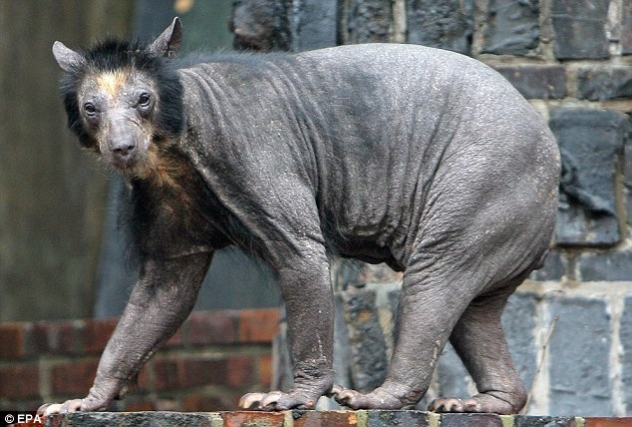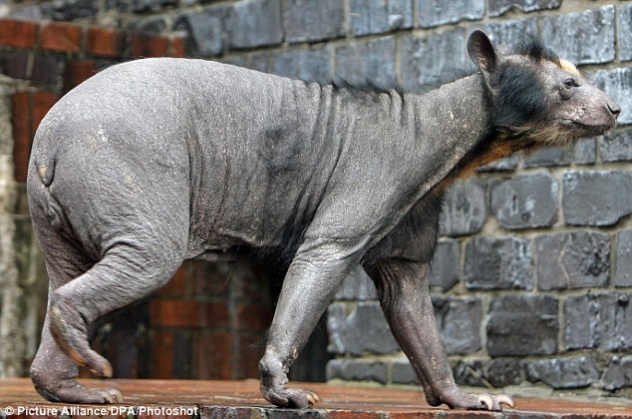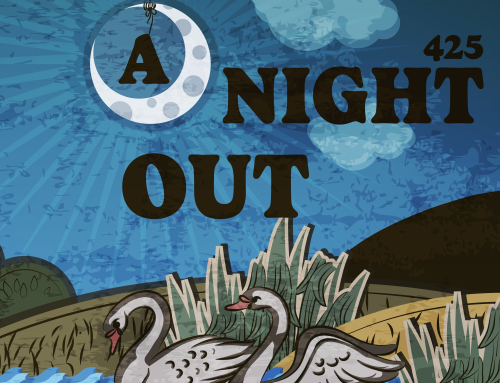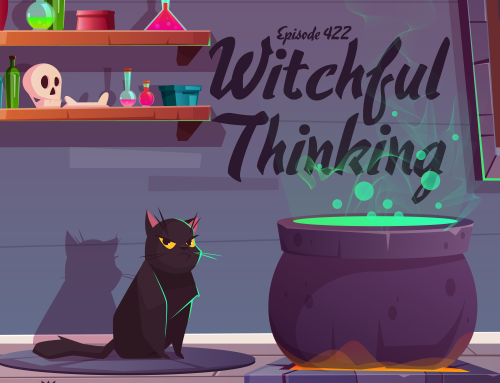Episode summary:
We're back in the time of King Arthur, picking up right about where we stopped off last time (though you don't need to have heard last time to listen today). We'll be talking about the story of Lancelot - where this incredibly important character came from and why he's know as Lancelot of the Lake (spoiler alert, he grew up in a lake). Merlin gets weird, and we catch up with a certain lion-befriending knight that helped to kick off this whole podcast.
The creature is the bouncy bear who is basically a bullet-proof superhero...if all superheroes did was eat horses and sleep.
The episode:
The story of Lancelot is a tough one, even for the Arthurian legends. The early stories are spread out among multiple different sources. The most lengthy and comprehensive source is the Lancelot-Grail cycle, which takes place in the French Vulgate and Post-Vulgate. It spans nine volumes and thousands of pages and contradicts itself several times. Malory, Chretien de Troyes, and Tennyson (to name just a few writers) all conflict with the French Vulgate version. I'm doing the best I can, but wow is this a shaggy dog story. It will become most apparent for all ten of you who know the Vulgate and Post-Vulgate versions next week when we skip over a lot of what happens between him becoming a knight for Arthur and the very first Lancelot story by Chretien de Troyes, where he has to ride in a horrible, dwarf-driven cart.
That leads us to the Lady of the Lake, who is contradictory to the point where it is almost ridiculous. There are multiple versions of her character in the French Vulgate. The first of which is where she is a twelve-year-old, but she doesn't actually discover Merlin's identity, but just leaves and later raises Lancelot. The second is where she is a young noblewoman who (and this gets rough) is being pursued by the man she learns is Merlin. She learns magic lessons by day from him, but by night he tries to use the lessons to coerce her into having sex. Luckily, she told Merlin that a condition of her running away with him was that she would be able to seal any opening so that only she could open it and that she had to be able to put someone in a sleep only she could wake them up from. This was, ostensibly, to keep Viviane (named Nimue in this version), from getting in trouble with her father. She would be able to put her father in a deep sleep and seal the door so that no one could enter. She also uses it to protect herself from Merlin's very much unwanted advances. She...um..seals herself off every night as a failsafe, and then put him to sleep, tricking him into thinking he was having the best night of his life...every night. When she learns all she can, she...well, you'll have to wait a couple weeks for the ending to this story. Suffice to say, it deeply conflicts with the main story I have been telling.
As I said, there are no official stories of the Lady of the Lake, and though many writers make a distinction between the one that gave Arthur Excalibur and the one that raised Lancelot, many writers attribute different things to different women, so it all ends up being a muddled mess. The twelve-year-old version made enough sense because it made her just the right age to be a major player in Arthur's kingdom later (only 3 years younger than Arthur), it gave her ample reason to flee to the continent given the power differential between she and Merlin, and it gave her a good twenty years to raise baby Galahad before returning.
Do you want shaved bear pictures? I have shaved bear pictures!
Anyway, let me know what you think in the comments!
If you have time, check out the sponsors for this week:
A new podcast - Remarkable Lives, Tragic Deaths: https://itunes.apple.com/us/podcast/remarkable-lives.-tragic-deaths./id1137724528?mt=2
Audible.com: http://www.audible.com/myths
American Gods on Audible: http://www.audible.com/pd/Sci-Fi-Fantasy/American-Gods-The-Tenth-Anniversary-Edition-A-Full-Cast-Production-Audiobook/B0055274U2/ref=a_search_c4_1_1_srTtl?qid=1470797939&sr=1-1
Music:
"It's always too late to start over" by Chris Zabriskie | "Twelve Monkeys (Instrumental Version)" by Josh Woodward | "Black is the Color" by Poddington Bear | "Lone Road" by Poddington Bear | "Old Skin" by Poddington Bear | "Spinning Meter" by Blue Dot Sessions | "The Rampart" by Blue Dot Sessions | "Two Boys and a Girl" by Poddington Bear










So I am confused about Galahad vs Lancelot. The only reference I can find about Galahad is that he is the illegitimate son of Lancelot, but in this version you have them as the same person! Did I misinterpret what you were telling?
This is what I heard and found too! I’m so confused.
I am far from an expert, but I think it’s that Lancelot’s original name was Galahad, and his bastard son, also named Galahad just happens to have the same name. I am currently reading Le Morte D’Arthur, and they are definitely distinct characters in that. However, I would like to reiterate that I am not an expert on this stuff.
BORING!!!!!!
BORING!!!!!!
The more I learn about Arthurian legend, the more I am convinced the people who wrote it had a complete and total lack of morality, even within historical context.
Also, how do you spell the name of the creature of the week? I really want to read more about it!
Hey, after looking online for about an hour online for what the spelling of the name I finally found it! It’s spelled Gumberoo. I think that should help you out!
Yes! Thank you :)
Weird o
how dare you!!!If you had even . 001% of talent these guys do then why don’t you have the guts to d this? Oh that’s right, because you DON’T!
Just because your mum says your cool doesn’t make it the truth, weirdo!
This is super interesting. I’ve been a King Arthur fan since I was a kid and read as many different versions of the story as I can find just to see the different paths that writers can take it down, but I’ve never read these backstories for the Lady of the Lake. Recently I’ve finished epics based on Arthur by Bernard Cromwell and Stephen R. Lawhead, and they are very very different from the more well known “historical” texts, but definitely well worth the read. Love the podcast!
Enjoy your show! Good work and good voice. Merlin was always my favorite wizard, but you have given me a whole new education. One thing that I always believed- and it was probably taught to me by tv shows- was that Merlin aged backwards. He was born an old man and aged younger. Any truth in that? Thanks for all you do.
I’ve heard that too, but as far as I can tell that didn’t happen in the medieval versions of the story. It seems there’s some precedent for it in “Le Morte d’Arthur”, where it’s said Merlin knows the future but not the past. It largely seems to be a T.H. White invention.